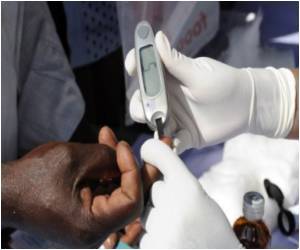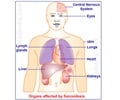
LAM is a rare and progressive lung disease in which cancer-like cells infiltrate the lung, leading to shortness of breath, coughing, chest pain, and in many cases eventual respiratory failure. LAM affects almost exclusively women, primarily of child-bearing age. Though only around 1,000 women in the U.S. have diagnosed LAM, there may be many more as the disease is not well-diagnosed.
This international study, led by the University of Cincinnati, recruited 89 LAM patients to test sirolimus, a drug that can suppress rapid cell growth by blocking an overactive protein called mTOR. Sirolimus is already used as an immune suppressant for organ transplants and is also being tested as a cancer drug. mTOR is also highly active in the invading cells that cause LAM.
The participants took daily oral doses of sirolimus or placebo over 12 months and had their lung function measured at regular intervals. The primary measurement was forced expiratory volume (FEV1), or the volume of air that can be forced out in the first second after taking a deep breath. The sirolimus group displayed stable FEV1 levels over the 12-month treatment period, compared to a roughly 12% decline in the placebo group. The sirolimus group also showed other clinical improvements, and reported a greater ability to carry out day-to-day functions and a better quality of life.
Following the treatment period, the study participants underwent 12-months of observation. After stopping sirolimus, the decline in lung function was similar in both the sirolimus and placebo groups, indicating treatment effectiveness likely requires continued use.
Advertisement













